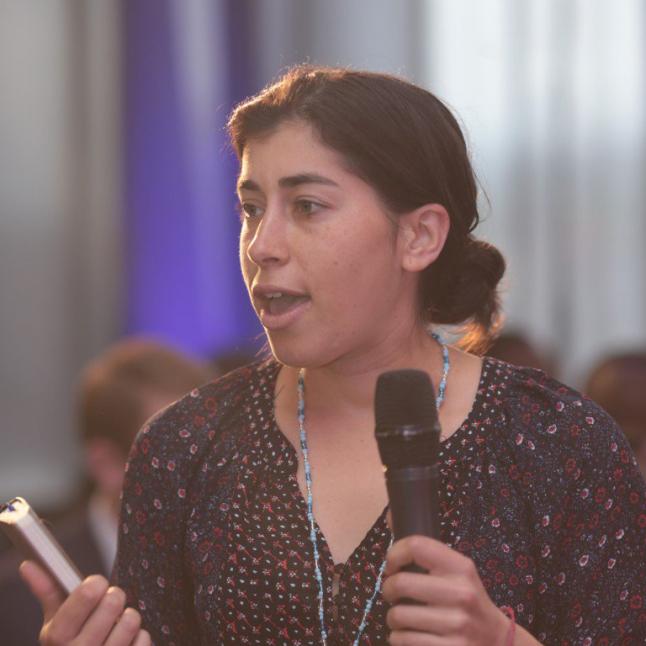On June 29-30, more than 300 representatives from country governments, regional bodies, the private sector, and civil society — from a youth mapper of Nairobi’s Kibera district to Ghana’s Minister of Planning — gathered to put data at the forefront of planning for the Sustainable Development Goals (SDGs).
We were invited to showcase our project “From Fragmented to Integrated Data Systems: Improving the Allocation of HIV/AIDS in Uganda and Zambia,” one of 22 innovations selected to present on the second day of the High Level Meeting on Data for Development in Africa in Nairobi.

Organized by the Global Partnership for Sustainable Development Data (GPSDD), the two-day #AfData17 conference showcased partnerships, projects, and institutions that are building the data infrastructure necessary to achieve the SDGs. Leaders from the public and private sector discussed a wide range of topics on the first day, including: driving innovation at the national level, developing home-grown talent, and using data to improve access to vital services.
Why data strategy matters
While the first day’s sessions helped demonstrate why data will matter in achieving the SDGs, they did not present the underlying strategies, mechanisms, and components by which better quality and greater quantity of information can accomplish this vision.
To fill this gap, Day 2 was dedicated to a showcasing and networking event for 22 organizations to exhibit how their data-driven innovations are improving development outcomes in the continent. Attendees delved deeply into how these innovative initiatives are: (1) strengthening data infrastructure, (2) driving more and better use of data to inform policy-making, (3) leveraging partnerships, (4) planning on scaling up, and (4) contributing to the SDGs. The event format allowed government, civil society, private sector, and academic actors to ask difficult and specific questions, nurturing learning and engagement.

AidData’s project to reduce HIV/AIDS rates among adolescent girls and women in sub-Saharan African countries was one of the 22 innovations present at the showcasing and networking event. Funded by PEPFAR’s DREAMS Innovation Challenge through a two-year award, we are building a Decision-Support Tool that will enable decision-makers to allocate HIV/AIDS prevention and treatment resources more effectively. Our goal is to break down data silos, transform data into actionable insights, and improve targeting of investments so that young women and other vulnerable groups receive the necessary resources to fight the HIV/AIDS epidemic. Ndola, Zambia and Oyam, Uganda are the pilot districts for our innovation.
Designing with humans in mind
To achieve this goal, we are relying on a human-centered design in which the end users (e.g. a district and provincial health officer, a data entry clerk at a district-level clinic, an M&E database manager at the Ministry of Health) are actively involved in shaping the solution at all stages of development. Through this iterative cycle, we have been able and will continue to gain useful feedback that ensures the Decision-Support Tool meets the needs and preferences of decision-makers and data users.
To facilitate connections with key stakeholders and gain insight into existing pain points and where data can better support local-level decision-making, we are partnering with two organizations — Akros and ToroDev — that have a local presence in Zambia and Uganda. The NGOs, multilateral organizations, and district-level bodies we’ve interviewed thus far have expressed high interest in a tool that would centralize the most relevant indicators on HIV/AIDS prevention and treatment resources.
Listening to public and private sector leaders call for improving and using data to drive decisions, observing the tools and methodologies of the other 21 innovations, and receiving critical feedback on the human-centered approach to designing our Decision-Support Tool broadened our perspective and plans for work in Uganda and Zambia. In the coming months, AidData will seek to incorporate some of these lessons learned into the design and implementation of our project.


